What Happens If You Don’t Rotate Your Tires
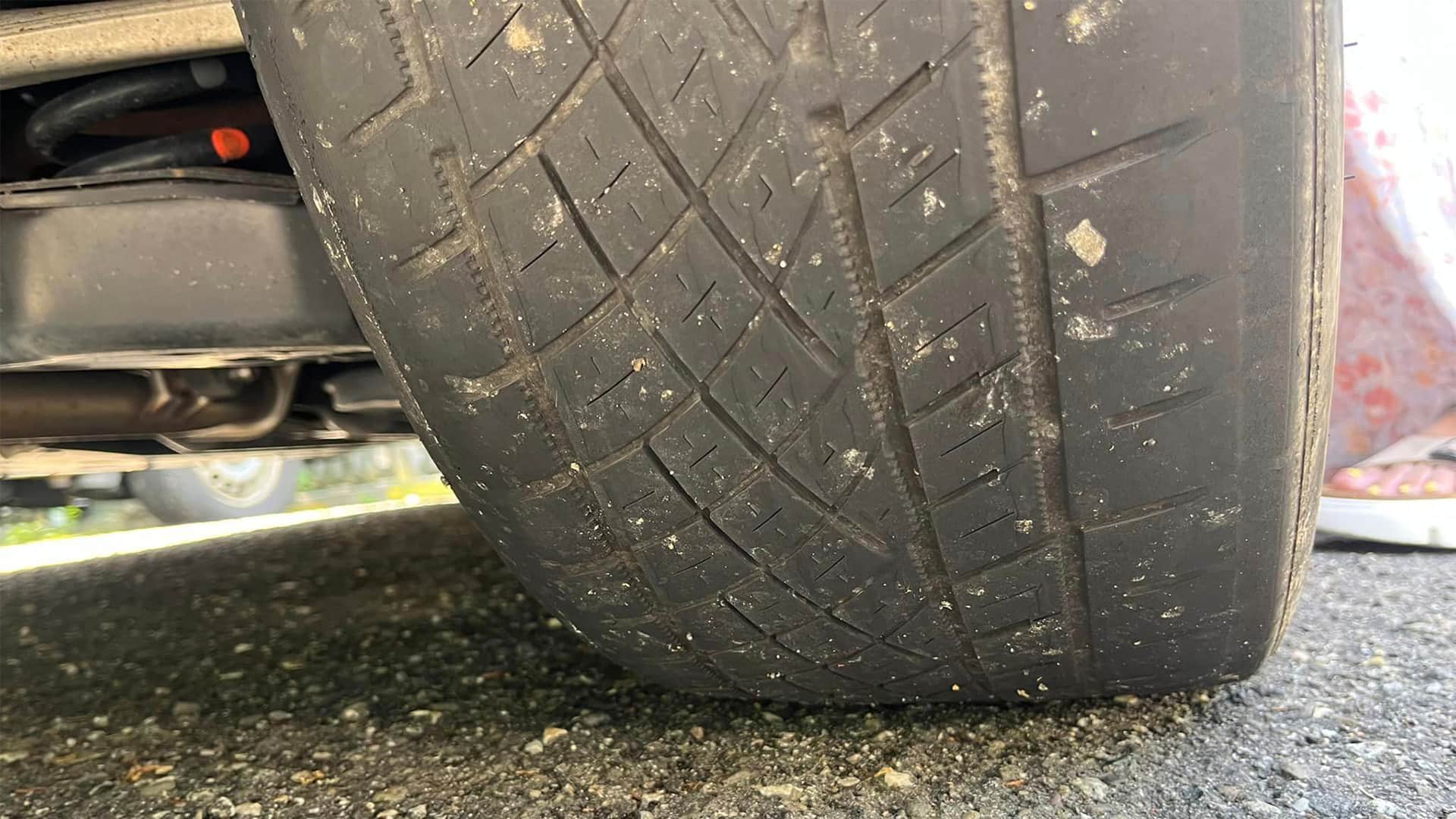
Most people tend to overlook the importance of tire rotation, which happens to be a crucial aspect of routine car maintenance. In case you are wondering what it is all about and why car manufacturers recommend it, let’s find out!
The concept of tire tread wear isn’t complicated at all. The more your tires grip the road, the faster they wear out. However, this wear doesn’t occur uniformly across all four tires due to several factors such as weight distribution, braking habits, type, and brand of tire used among others.
That’s where tire rotation comes in handy. During this procedure, each of your four wheels gets relocated to a different position on your car’s axles – say, moving the front right tire to the back left spot. This shuffle ensures that all four tires wear out evenly.
To know how frequently you should rotate your tires, refer to your owner’s manual or better yet – chat with auto care professionals near you. In general, though, most vehicle makers recommend getting a tire rotation every 5k miles.
What If I Don’t Rotate My Tires?
Some Tires Will Wear Out Faster
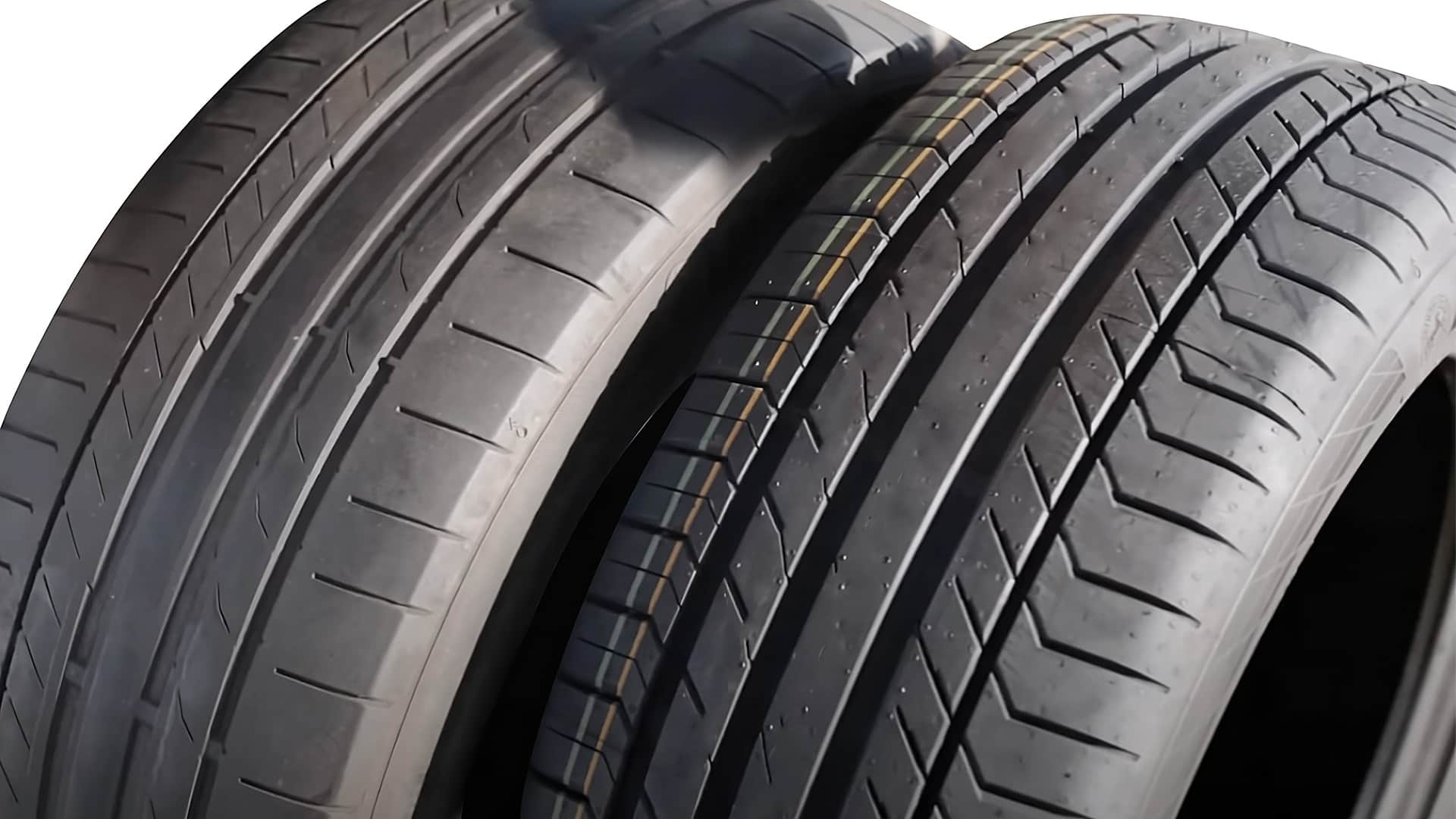
If you decide against rotating your car’s tires at regular intervals, it will cause some of the tires to wear out faster than others.
Front and rear axle tires get exposed to different stresses and strains. For example, front-wheel drive automobiles apply more stress on the front wheels since they handle power delivery and cornering and braking duties.
The effect of such strains can be uneven wearing, where one or two of the four tires could have significantly less tread depth than the others. Such a scenario means compromised handling ability when driving at high speeds, and difficulty trying to manage turns safely and effectively.
According to an NHTSA report, over a quarter of all tire-related car accidents result from insufficient tread depth
You Will Spend More Money In The Long-Term
According to a study by Consumer Reports, the cost of tire rotation is totally worth it. The report is based on the example of a front-wheel drive vehicle where the front tires typically wear out three times faster than the rear ones.
As a result, without tire rotation, the front tires would need replacing every 20k miles while the rears would last for up to 60k miles.
However, by rotating tires every 5-8k miles, all four tires could each last to 40k miles before requiring replacement, and by the time a car hits 120,000 miles, you will have to buy eight new tires instead of twelve.
You Can Lose Your Tire Warranty
It’s crucial to note that regularly rotating your car’s tires is often a requirement for retaining your tire warranty.
Many tire manufacturers often stipulate in their warranty coverage that neglecting tire rotation can lead to warranties being null and void. Consequently, this means skipping out on scheduled tire maintenance can be very detrimental — resulting in a denied warranty claim if anything happens with the tires.
Less Traction
Less traction is another critical issue that arises when you skip rotating your tires. As we previously learned, if you don’t rotate your car’s tires, the tread on each tire will not wear evenly. Consequently, some of your tires will have more grip and traction and some less.
As such, vehicles with unevenly worn-out tires may react unpredictably when trying to brake or steer while taking turns – posing dangers to drivers, passengers, and other road users.
Higher Risk Of Hydroplaning

A deep tread depth is critical as it serves a function that many people aren’t aware of. It helps channel water away from the tire surface, allowing it to maintain a firm grip on the road – even under wet conditions.
If you don’t have sufficient tread depth, the possibility emerges where your tires can skim over the surface of water- leading to hydroplaning! This poses significant hazards; influence or control over steering and handling goes down tremendously, leading to the driver being unable to respond appropriately causing possible accidents.
Higher Risk Of Punctures And Blowouts
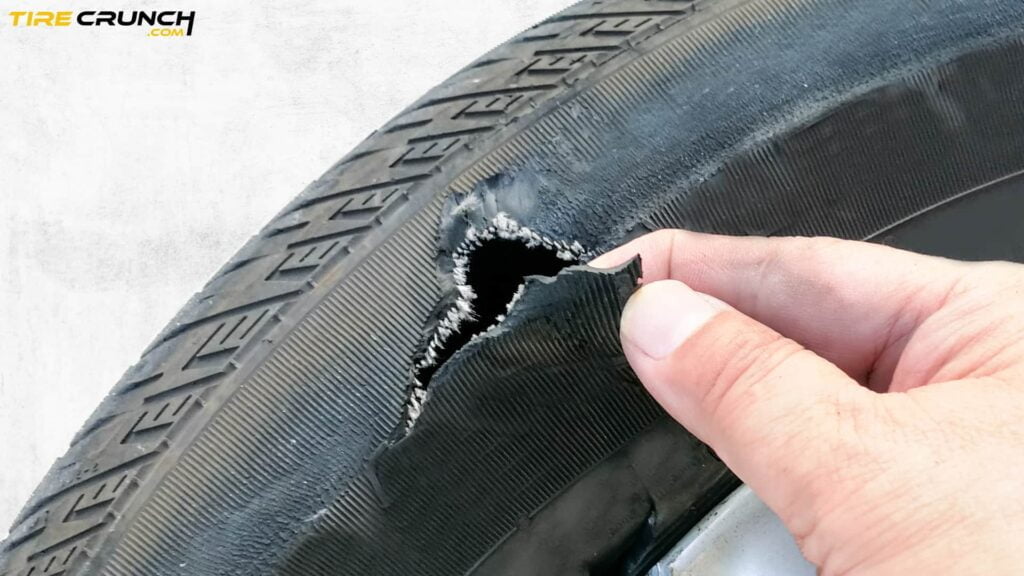
The thinner the tire tread, the more vulnerable it becomes to any outdoor debris such as nails, sharp rocks or glass.
Since worn-out spots are typically weak and susceptible, it’s easier for any foreign object hitting that specific area to result in punctures or even devastating blowouts.
Besides, when one tire fails due to punctures or blowouts, both drivers and passengers also face potential risks, including injury from an erratic vehicle going out of control.
Vibration and Noise
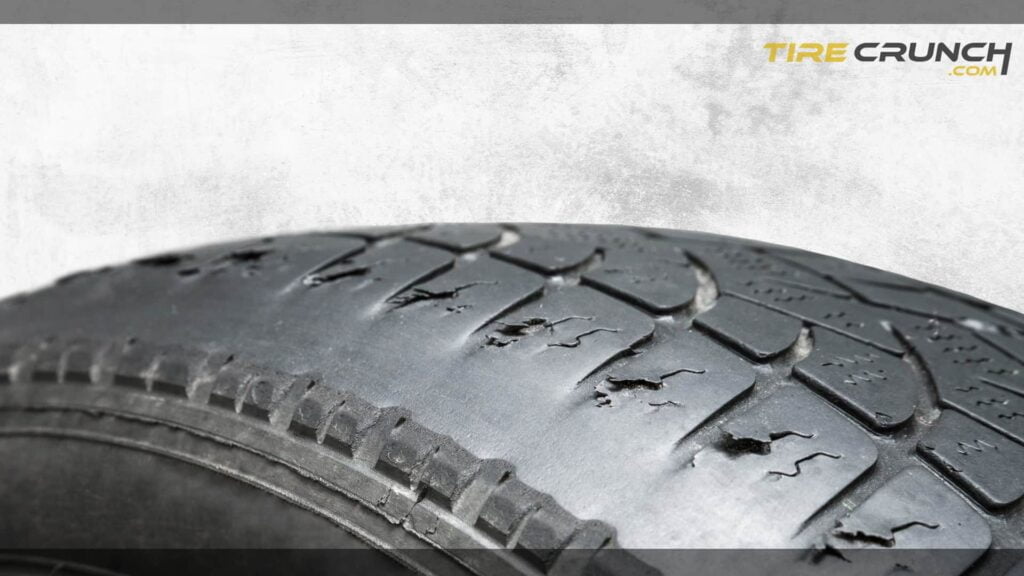
If you don’t rotate your car’s tires regularly, they may develop uneven tread wear that leads to significant vibrations and noise while driving.
Additionally, if you neglect tire rotations altogether, it can lead to a domino effect of severe complications affecting many other components like wheels or even the suspension system by adding extra strain on them – effectively requiring further maintenance needs over time!
Decreased Fuel Efficiency
Tires with mismatched treads will cause your car engine to bulldoze through energy reserves while driving, resulting in more frequent stop trips at gas stations.
If you avoid regular tire rotations, a typical result can be decreased fuel efficiency by as much as 3%. Although that may seem like a small amount at first glance, few additional trips to the gas station quickly accumulate over time- leading to a significant increase in annual expenses due to car mileage running low.
Why Should I Rotate My Tires?
By keeping up with the manufacturer-recommended intervals for tire rotation, you’ll promote even wearing of the tread. And this leads to a superior handling experience while driving, accompanied by less vibration and noise – making for a more comfortable ride overall.
Regularly rotating your tires not only helps them last longer but also keeps intact any warranty covering the tires. This ultimately translates into financial savings for you since you won’t have to buy new tires as often!
When Not To Rotate Tires?
It’s important to note that tire rotation requires taking certain precautions and going about the process correctly to ensure safety. Here are some reasons why you might want to avoid rotating your tires:
Best Rotation Patterns
front-wheel Drive Vehicles
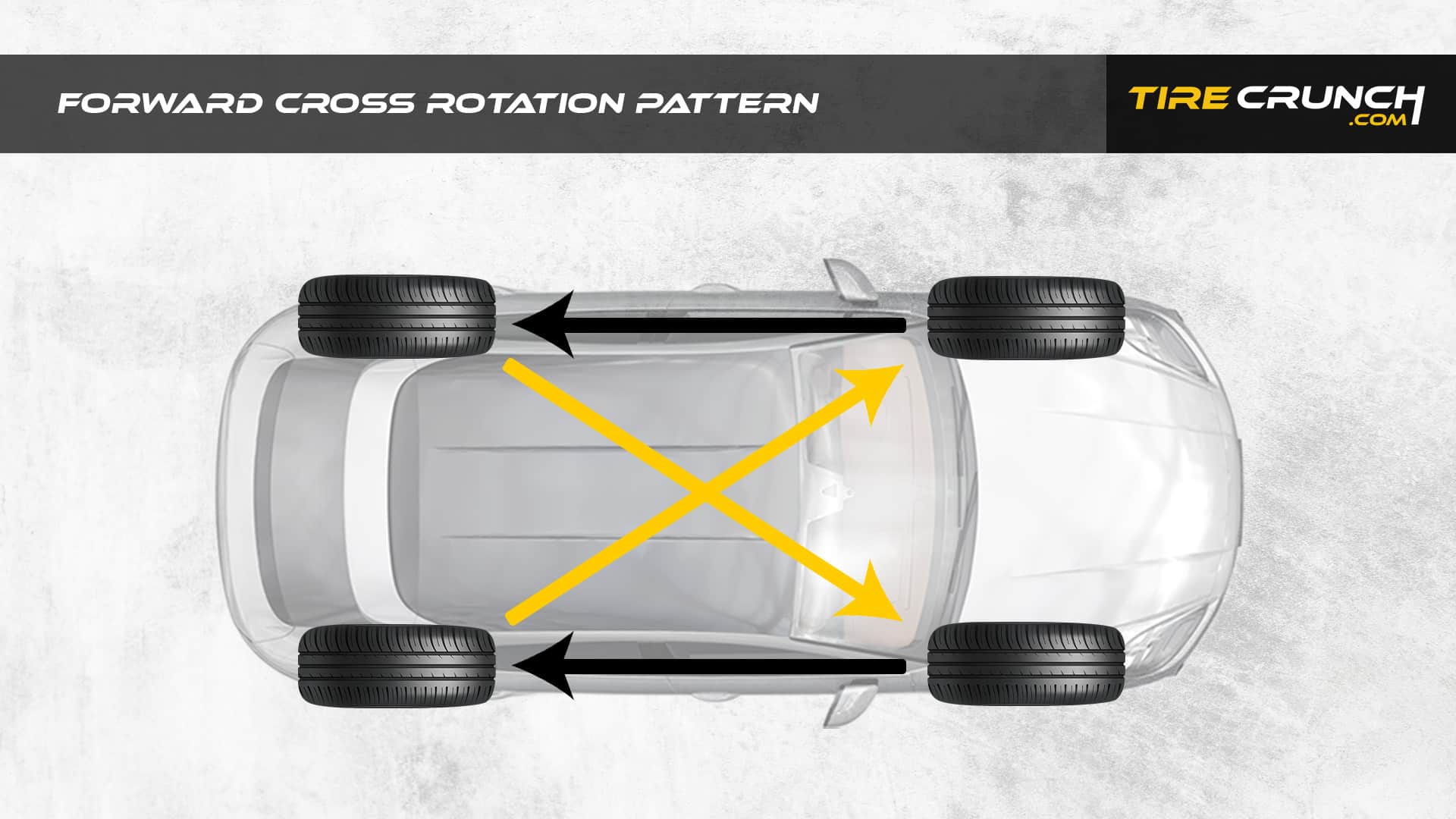
When it comes to front-wheel drive vehicles, tire rotation is especially crucial since the front tires experience a lot of wear and tear through frequent acceleration and steering. As such, problems with tread wear are often most pronounced on the front tires.
If you drive an FWD vehicle, it’s recommended that when rotating your tires at service times, you move the rear wheels forward in cross pattern so that they are now your new front wheels.
However, this is different for the back wheels; here you will simply bring them straight up to become the new back tires in their original left/right positions.
Rear Wheel Drive And AWD Vehicles
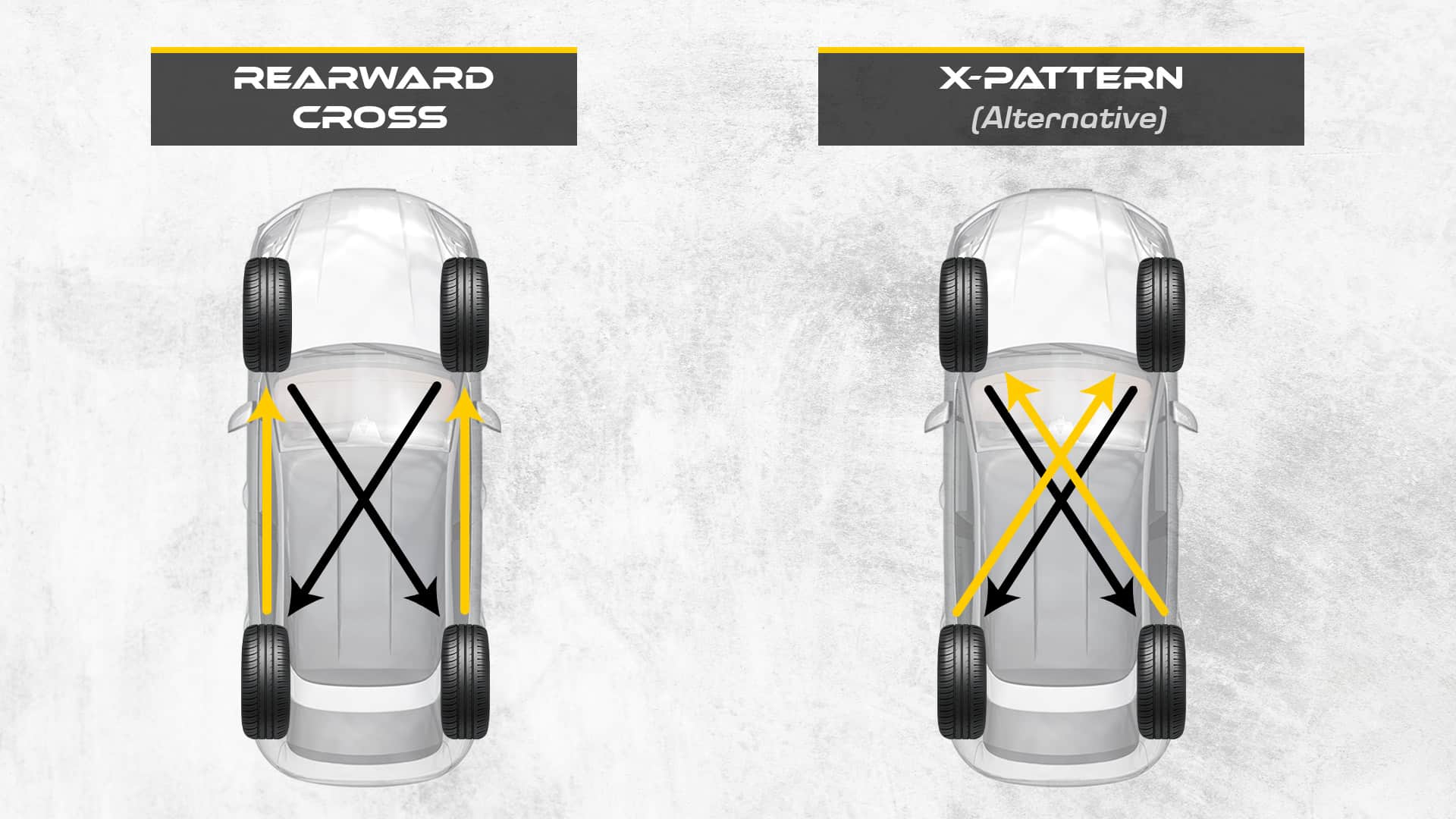
Rear-wheel drive (RWD) and all wheel drive cars (AWD) offer a more balanced tread wear than front-wheel drive cars due to the different functions of the front and rear tires but just like FWD vehicles, they require regular tire rotation.
When working with RWD or AWD cars, remember to take up an opposing process as listed above—in this case, move the backs into straight ahead positions at the front while bringing the fronts straight back – swapping positions between right/left.
Alternatively, some mechanics prefer to use an X-Pattern where left rear goes to right-front spot then taking right-rear tire and putting it in left-front slot while swapping front tires diagonally towards their new locations.
FAQs
How Often Should You Get A Tire Rotation?
We recommend rotating your tires every 5,000 miles. But if you notice any weird wear and tear, it’s best to rotate them earlier. Keep an eye out for that!
However, your vehicle’s manual will have the ideal schedule for your particular make and model.
How Long Does A Tire Rotation Take?
Tire rotation usually takes about 30 minutes.
How Much Does A Tire Rotation Cost?
Tire rotation costs can vary depending on several factors, such as your location and the type of vehicle you drive. However, on average, a tire rotation service can cost anywhere between $20 and $50.
At some auto care centers, you might have the option to get free tire rotations for as long as you own your tires if you purchase them from that establishment or participate in their loyalty program/check-in regularly for other services!
How Long Will Tires Last If Not Rotated?
According to tire manufacturers, tires are designed to last a certain number of miles. In cases where you decide not to rotate your vehicle’s tires regularly, you should expect that the tire’s useful life will reduce by up to 25% less than the manufacturer’s guarantee.
However, it’s important to note that many variables come into play when considering how long tires can last before wearing out – for example, aggressive driving behaviors and road conditions such as sharp turns & frequent braking force accelerates tread wear.
Final Words
So, make sure to include regular tire rotations in your vehicle maintenance routine. It’s a simple step that can go a long way in keeping you safe on the roads and extending the life of your tires. By rotating them regularly, you’ll get even wear out of each tire, which means they can last longer, saving you money in the long run.
Whether you choose to take it on yourself or have it done by professionals, be consistent with your rotation schedule. Your tires (and your wallet) will thank you!
